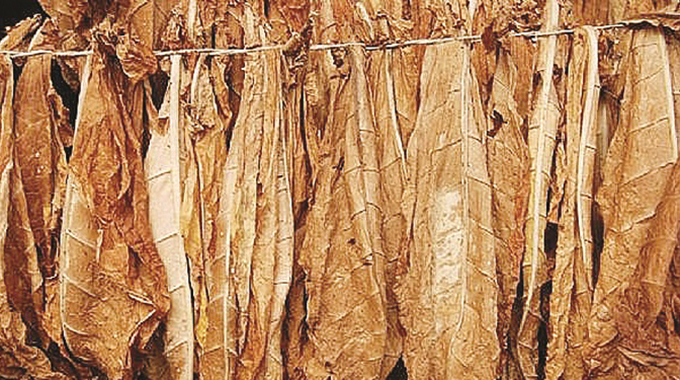EDITORIAL COMMENT: More sophisticated farming finance due

Tobacco is highly susceptible to hail damage, a good hailstorm able to destroy large fields of the crop with nothing to salvage and this was seen way back in colonial times when the tobacco industry was still in its infancy.
Other crops will, of course, be damaged by hail, but generally can recover and a farmer may not be seriously affected, or least be able to salvage much of the crop.
Grasses and legumes, which form the bulk of the cropping programme are in a different category with the seeds being the important part, from tobacco shrubs where the leaves are crop.
We have seen the sort of damage that can occur just this week, when a young go-ahead farmer in Marondera lost 25ha of tobacco in a single storm, and not only lost his crop, but cannot replant this seasons since it is too late.
Only a very small percentage of the tobacco crop is lost each year to hail, as we do not get that many hail storms, but the problem is that no farmer can tell if they will be among the couple of handfuls of growers almost wiped out financially.
This combination of unpredictability, total destruction if hit and yet very few hit makes insurance for hail an obvious requirement.
The low incidence makes such insurance cheap, since there will be few claims, yet the unpredictability of storms and the massive damage in each storm make it essential if we are to keep good farmers in production.
But to work a hail scheme needs all tobacco farmers to be involved. The small premiums from each of the vast majority will, when totalled, be enough to fund the huge payments to the small minority who watch a season’s work shredded.
To ensure this universal participation in hail insurance required for a viable and cheap scheme, the colonialists forced all commercial growers to be registered with the growers organisation and then all had to pay the premiums. This worked in that environment, but cannot work so well now.
While all growers still have to be registered, these days with the Tobacco Industry Marketing Board, most are small-scale growers and almost all are under contract.
Few have loose change available at the beginning of the season to buy insurance and many are willing to take the small risk, despite the horrendous effects if they are hit.
But there are other ways of raising the premiums from every grower.
A small levy could be imposed on tobacco seed for those who prepare their own beds and on the seedlings for the larger number who buy the trays.
It would in theory be possible to include the insurance premium with the registration fee paid each year to TIMB, but not everyone who registers actually plants, so there would be resistance.
Again the premiums could be included in the contract, so that the contractors pay and recover from the farmer when the tobacco is sold along with other input costs, leaving the modest minority who self-finance to be charged for the fee at the beginning of the season.
Even this group usually have to involve a bank and so the insurance premiums could be part of the finance arrangements and paid by the banks.
But whichever system is chosen, and farmers, banks, the TIMB, the revamped Agricultural Marketing Authority and the Government will all need to be involved in the discussions, the compulsory scheme is required.
Of course checks on the destroyed crops will need to be made, since there could well be someone claiming insurance payouts without having actually planted, or whose crop was wrecked by drought before the storm.
But that is simple and even for the smallest growers the local Agritex officer could make a quick trip on the motorbike to fill in the required section on the form.
Government, semi-Government and private programmes have already seen Zimbabwe’s agricultural production expand beyond the colonial limits.
We are not talking about rebuilding the sector, that has been done. What we are talking about is growing the sector.
But a lot of the financial infrastructure of the old colonial systems still needs to be retained, although usually in a quite different form, and expanded and adapted to the new world of a lot more but smaller farms. And this includes insurance.
The Second Republic has made sterling efforts to bring more of a business attitude into farming, at all levels.
The range of Presidential input schemes might not have repayment terms, since the inputs are budgeted and can be considered not just a way of relieving rural poverty but a cost saving in reducing and eliminating the need for food handouts and other social payments.
But those farmers still have to sell their commercial surpluses where they are told.
And the larger scale farmers do have to repay, since only a tiny fraction of their output is retained for farm consumption, when they sell. The major efforts to eliminate side marketing are now starting to work.
The whole agricultural financial system in all its aspects is undergoing a great deal of necessary revamping and regularisation, moving away from the ad hoc arrangements needed to preserve something from the days of hyperinflation, but the process needs to be accelerated and become ever more formalised, and to include a lot of the bits and pieces that experience shows and has shown need to be included.









Comments